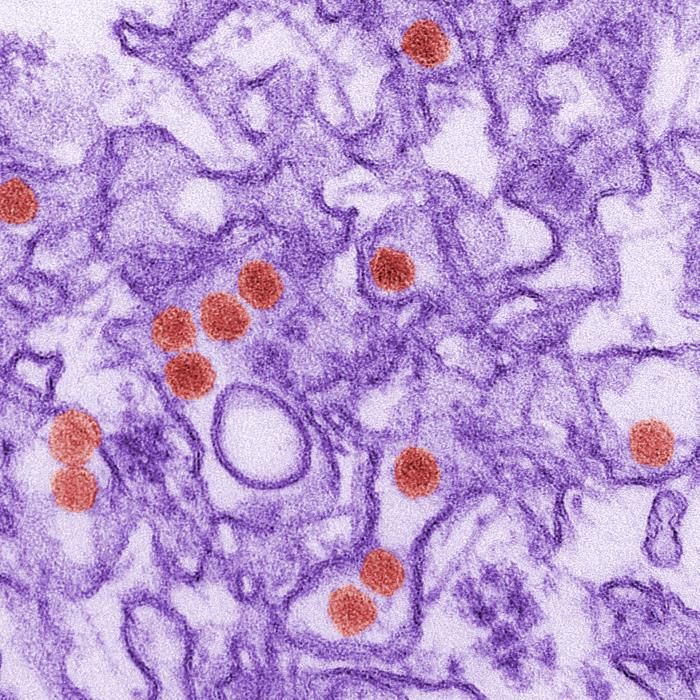Zika Does Raise Microcephaly Risk, New Study Suggests

A new estimate suggests that one in 100 women who become infected with the Zika virus during the first trimester of pregnancy will give birth to a child with microcephaly, a condition that causes an abnormally small brain and head. The finding comes from researchers' study of a single outbreak of Zika.
The new results support the idea that pregnant women who become infected with the Zika virus in the first trimester of pregnancy may have the highest risk of giving birth to babies with the condition, compared with women who become infected later in their pregnancies, researchers said.
"Our analysis strongly supports the hypothesis that Zika virus infection during the first trimester of pregnancy is associated with an increased risk of microcephaly," study co-author Dr. Simon Cauchemez, of the Institut Pasteur in Paris, France, said in a statement.
However, the findings are based only on data from one six-month-long Zika outbreak in French Polynesia, and so it is not yet clear whether this estimate will also apply in other countries affected by the ongoing outbreak, he noted. [Zika Virus News: Complete Coverage Of The Outbreak]
In the study, researchers looked at the prevalence of microcephaly among babies born during or around the time of a Zika virus outbreak in French Polynesia that began in October 2013 and ended in April 2014. The researchers identified eight babies born with microcephaly during the 23-month study period, between September 2013 and July 2015.
Among these cases, seven of the infants were born during the four-month period between March 2014 and July 2014. The researchers estimated, based on their calculations, that the women who became infected with the virus in the first trimester of pregnancy had a higher risk of giving birth to babies with microcephaly, compared with women who became infected later in their pregnancies, according to the findings, published today (March 15) in the journal The Lancet.
"The finding that the highest risk of microcephaly was associated with infection in the first trimester of pregnancy is biologically plausible," because the first trimester is an important period for the development of a fetus' brain, Dr. Laura Rodrigues, of the London School of Hygiene & Tropical Medicine, who was not involved in the new study, wrote in a related editorial published in the same journal.
Sign up for the Live Science daily newsletter now
Get the world’s most fascinating discoveries delivered straight to your inbox.
But the finding that the risk of microcephaly is one in 100 (or 1 percent) among the babies born to women infected during the first trimester is lower than expected, the researchers said. That expectation is based on the risk of birth defects in babies born to women who had been infected with some other viruses, the investigators said. [Zika Prevention: Can Pregnant Women Safely Use Mosquito Repellants?]
For example, babies born to mothers who are infected during pregnancy with a common type of herpes virus called cytomegalovirus face a 13 percent risk of birth defects. And the risk of an infant having congenital rubella syndrome ranges from 38 to 100 percent if a mother is infected with rubella during her first trimester of pregnancy.
However, the percentage of people who become infected with these other viruses is normally much lower than the incidence of infections with the Zika virus during outbreaks, the researchers said. For example, only about 1 percent to 4 percent of pregnant women become infected with cytomegalovirus per year, the scientists said.
In comparison, during the Zika outbreak in French Polynesia, 66 percent of the population was infected, the researchers said. Therefore, the link between microcephaly and the Zika virus remains an important public health issue, they said.
Moreover, microcephaly is not the only birth defect that has been linked to the virus, said Dr. Gregory Kapinos, a neurointensivist at North Shore University Hospital in Manhasset, New York, who was not involved in the study.
"Severely small heads is only 'the tip of the iceberg,' as many other birth defects are now studied as potentially correlated with Zika's infection, too, increasing the burden of disability and devastation that these babies could be facing, if they survive," Kapinos told Live Science.
Follow Agata Blaszczak-Boxe on Twitter. Follow Live Science @livescience, Facebook & Google+. Originally published on Live Science.











